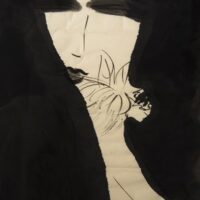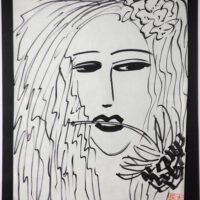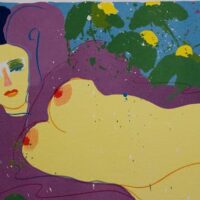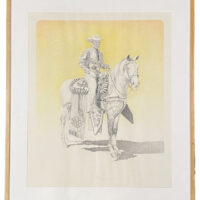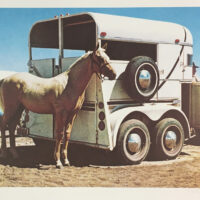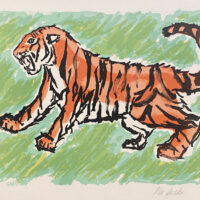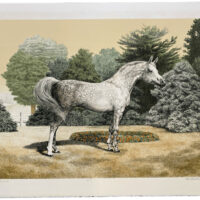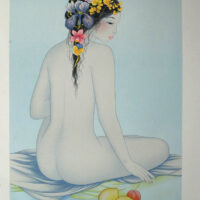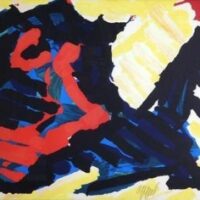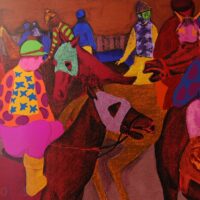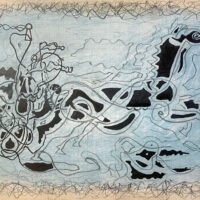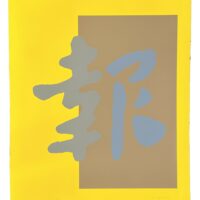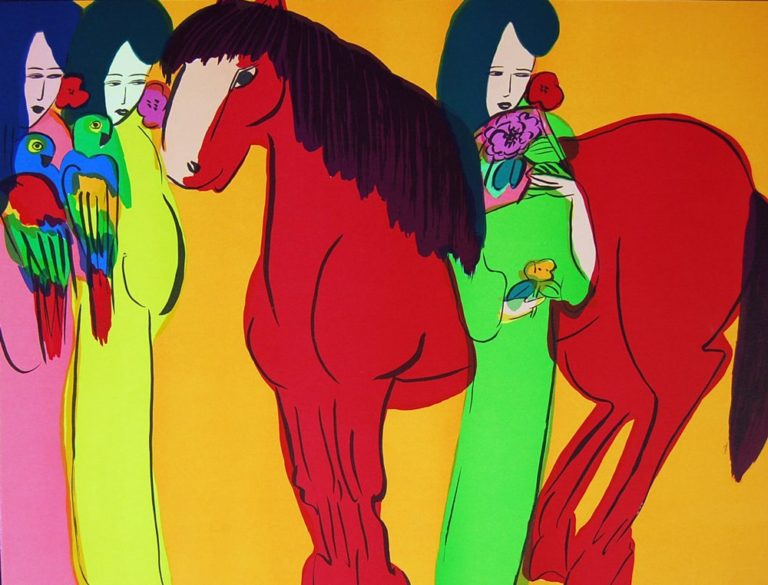Description
Walasse Ting was born in Wuxi, China in 1929, but was raised in Shanghai where, by his own account, he first began painting on sidewalks. In 1952 he moved to Paris where he formed close friendships with members of the CoBrA group. Eight years later Ting immigrated to New York, where he became involved with pop artists and was influenced by Abstract Expressionism. The conflict of conservative Eastern values and modern Western culture is apparent in Ting’s work as he states, “In this respect, artists are, to a certain extent, schizophrenics. Some try to resolve the contradiction by conscious means, by using traditional techniques and elements of traditional Chinese art in an attempt to modernise Chinese painting…” As Julien Alvard noted in 1954, “The influence of Chinese painting on Western painting, particularly American is well known. What we are faced with now is the problem reversed, and how impenetrable it becomes: it is how can one be a Chinese painter after the shock of Western painting? The painting of Walasse Ting is one of the aspects of the new battle that’s beginning to be fought”.
Ting adores nature and beauty. He loves to paint naked women, watermelons, parrots and cats. The subject matter reflects his sensuality and the bold brush strokes and vivid palette is a testament to his abundant energy and joie de vivre. There is an ethereal quality to his work as Peter Schjeldahl of the New York Times observes; “…Ting is not, above all, an investigator of issues pertaining to the art of painting or to the nature of reality. What he is, in his own words, is ‘a butterfly’. Not so much lightweight as virtually weightless, he makes his airy, unshadowed way among the flora of modern art and, in his poetry, the fauna of urban living.”
In 1964 he published a book of his poems entitled One Cent Life illustrated with original lithographs by numerous American and European artists. In 1977 he was awarded a fellowship from the John Simon Guggenheim Foundation, and published Red Mouth, a book of erotic drawings and paintings. He is the author of many other books, and has had numerous exhibitions throughout the world.


